Preliminary Notes on Twin Peaks 2017
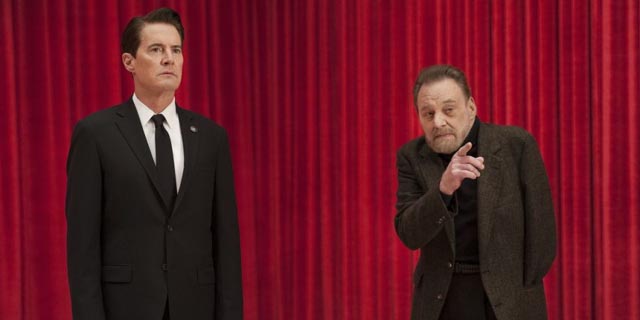
I’ve been an admirer of David Lynch’s work since I first saw Eraserhead in 1980. I don’t say “fan” because that seems too casual, too superficial. Lynch’s work affects me on a deeper, more visceral level. Of his ten features, there’s only one I dislike – Wild At Heart (1990), which has always struck me as something like self-parody, Lynch “doing” Lynch. And, although I couldn’t avoid the hype surrounding the original Twin Peaks in 1990-91, I didn’t actually see the series until the “Gold Box” edition was released on DVD in 2007. The main reason for this is that I didn’t even own a TV when the show first aired, and purely by chance I saw only one episode at the time. This, strangely, was episode seven in season 2, in which Laura Palmer’s killer was revealed to be her own father. I saw it during a weekend visit to see my mother and, needless to say, watching the brutality of that episode while sitting in the same room as my 65-year-old mother made for an extremely uncomfortable hour.
In 1992, when Lynch revisited that world in the feature Fire Walk With Me, the show’s fans and most critics were pretty harsh in their judgment – and at Cannes, two years after winning the Palme d’Or for Wild at Heart, Lynch was booed when FWWM screened. With no prior attachment to the series, I felt that the feature was among his best work and that Sheryl Lee’s Laura Palmer was the equal of any character he had created. All the strangeness of the film’s world seemed to emerge from a universe which resonated to this one girl’s terrible emotional pain. Over the following twenty-five years, the film’s reputation has steadily been redeemed and it’s now recognized as one of Lynch’s major works.
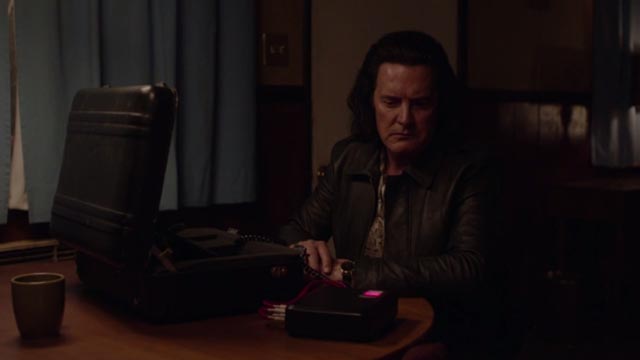
When I did finally watch the series ten years ago, I was engaged by its world up to and including that crucial fourteenth episode, but the rest of season two quickly collapsed into a mess of random weirdness, too often the work of people trying to imitate Lynch without being able to connect with the inner strangeness which drives his work. It’s remarkable that Lynch (and co-creator Mark Frost) managed to go as far as they did in the realm of network television, but in the end the limitations of the medium pretty much ensured that the show wouldn’t last past its second season. The original plan, after all, had been to leave the “who killed Laura Palmer?” mystery unsolved, to make the show an on-going accumulation of deeper and deeper layers of mystery. Something, in other words, which totally went against the grain of television as it was then constructed. In fact, it was Lynch and Frost pushing against those limitations – in combination with the proliferation of cable networks – which paved the way for what now seems the inevitable flowering of the complex, long-form storytelling which has superseded the traditional format of self-contained episodes.
In the decade-and-a-half after FWWM, Lynch made only four more features and – apart from the anomalous The Straight Story (1999), which reveals the filmmaker’s warmer, gentler side – they have all plunged more deeply into the darker depths of his subconscious. It was with 1997’s Lost Highway that I began to view his work differently. That radically bifurcated movie challenges any attempt the viewer might make to prise out a coherent, clearly delineated narrative. Is the second half a feverish dream into which Fred Madison retreats to escape his guilt for murdering his wife? Is the first half a nightmare experienced by bad boy Pete Dayton? … how can either theory hold when the two parts are so inextricably braided together?
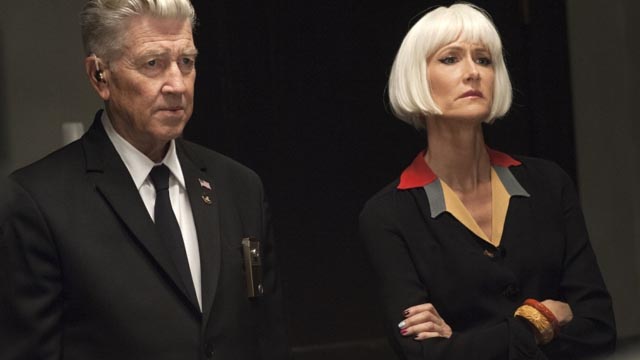
On a first viewing, I was confused and vaguely disappointed because I couldn’t extract a coherent story from the film, but as I revisited it I let that expectation go and approached it like a piece of music. What matters are the ways in which the separate narrative “notes” combine and/or bounce off each other to create a flow of moods and emotions. This, of course, has always been Lynch’s strength. He’s never really been a storyteller, but rather a creator of images and sounds which insinuate their way into the viewer’s brain to trigger powerful feelings, most often of dread, but also of emotional warmth, empathy, and humour. This is also true of Mulholland Drive (2001) – another film with a bifurcated narrative, but in this case more easily interpreted than Lost Highway – and especially in his monumental Inland Empire (2006), a film which embodies everything Lynch has learned about the medium in the thirty years since his remarkable debut with Eraserhead.
It’s not surprising that, in parallel with his filmmaking career, Lynch has had an abiding interest in music – from the complex use of sound in the early films, through his work with Angelo Badalamenti on numerous projects from Blue Velvet (1986) to the new Twin Peaks, to his own recording career, first as a producer (two albums for Julee Cruise, Lux Vivens for Jocelyn Montgomery) and then as musician, songwriter and singer on Blue Bob (with John Neff) and his two remarkable albums, Crazy Clown Time (2011) and The Big Dream (2013). It actually seemed that, having said so much about his understanding of cinema with Inland Empire, he had decisively moved on to other areas, concentrating on his painting and his music.
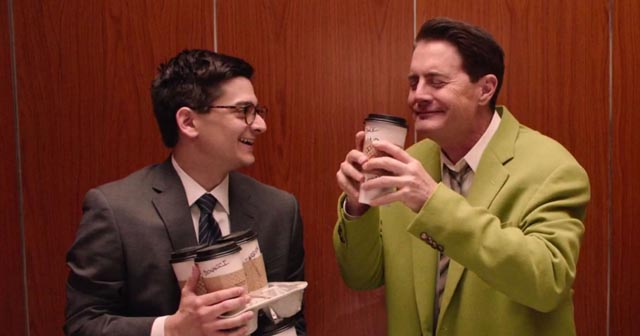
And so when it was first announced that he was going to revisit Twin Peaks, I actually felt a touch of disappointment. This seemed like a backward step, another example of an aging artist repeating himself because he was running out of original ideas (think Ridley Scott with his dire Alien retreads). The project was announced and cancelled a couple of times before finally going ahead, expanding from ten to eighteen episodes which aired on Showtime this past summer. I didn’t see it then as I don’t have cable, but a couple of friends had very positive responses (while avoiding telling me any details). And I was warned that it was best watched carefully one episode at a time, as it’s very dense and needs to be mulled over and digested slowly.
Needless to say, I picked it up on Blu-ray the moment it was released and, lacking any sense of self-control, I binged it over four days – the first two episodes on a Friday evening, six episodes the next day, seven on Sunday, and the final three on Monday evening. Even as I was doing this, I was aware it wasn’t the ideal way of absorbing the series – the whole weekend felt hallucinatory, and on Monday night I had strange Twin Peaks-inflected dreams. For four days, I was enthralled, I was infuriated, I was confused and I was frustrated. There were things I loved; there were things I hated. And eventually, I reached a point where I appreciated some of the things I hated because in retrospect, they took on … not so much meaning as a musical effect which enhanced the overall experience of the series.
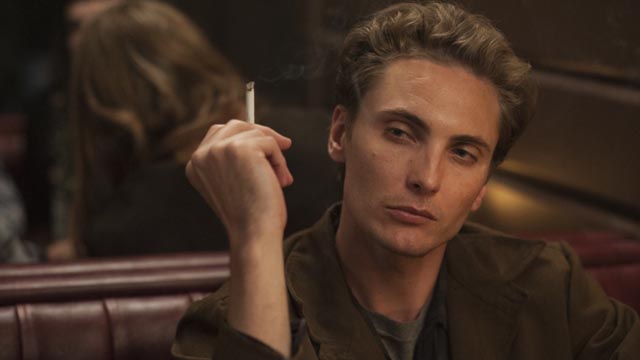
During the binge, I liked best the first few episodes and the last three. These strongly evoked the Lynch of Eraserhead and Inland Empire, the artist who creates weirdly hermetic interior worlds whose referents are often opaque because so deeply embedded in Lynch’s own subconscious – but all the more enthralling for that opacity because you get to immerse yourself in a place you’ve never been and explore its strange byways.
It was the episodes between these bookends which caused wild fluctuations in my response – all the stuff with Gordon Cole (Lynch himself), Albert (Miguel Ferrer) and Agent Tammy Preston (Chrysta Bell) was really entertaining, showcasing Lynch’s sly sense of comedy. This provided great counterpoint to Evil Cooper and his dealings with various criminals and sleazebags. The folksy return to the Twin Peaks Sheriff’s department, with Robert Forster filling in for the absent Michael Ontkean as former Sheriff Harry S. Truman’s brother Frank, offered a kind of cosy counterpoint to the violent odyssey of Evil Cooper and Cole and company’s pursuit. The series’ most touching moments are the brief telephone exchanges between Deputy Hawk (Michael Horse) and log lady Margaret Lanterman (Catherine Coulson); these few scenes do more than anything else to normalize the supernatural element which runs through the series.
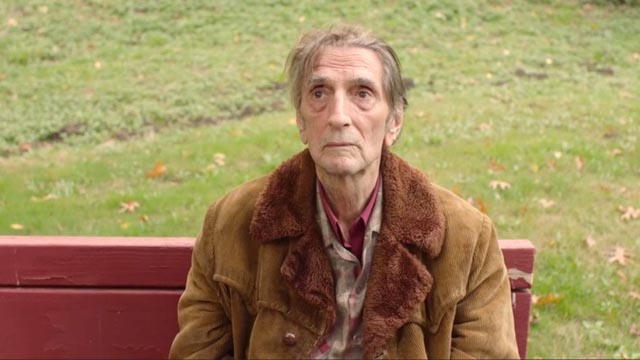
While the early episodes establish a world and set things in motion and the last three episodes draw many of the threads together – finally providing something like a pat resolution (which plays like a parody of a conventional ending) followed by a coda which opens up a yawning abyss which obliterates any sense of comfort that this “resolution” might have provided – all that comes between seems ragged and wayward, loaded with non-sequiturs and inconclusive scenes, echoes of the original series which lead not to dead ends but rather to openings which are left unexplored. Some things feel a bit like the random weirdness which plagued the second season of the original series – like Dr. Jacoby’s paranoid webcast (which nonetheless ultimately leads to a resolution of the tortured emotional triangle in which Big Ed, his wife Nadine, and cafe owner Norma have been trapped for over two decades). And then there are the musical numbers which end most episodes, with real performers appearing at the roadhouse; sometimes the number is just played straight through, sometimes it slips into the background of a scene – and these scenes often involve characters we see at no other time. It’s as if the roadhouse is a small pocket of the “real world” where people exist apart from the deranged universe in which all the other characters are trapped.
There are so many threads and tangents in the series’ mid-section that it’s impossible not to remain engaged, even when some of those threads frustrate engagement. The “flashback” to the ’40s and ’50s and the nuclear tests in the Nevada desert are moody and visually arresting, but how they connect to anything else seems vague, although the ghostly men who emerge from that desert impinge on a number of later scenes and show up again at the climax in the Twin Peaks Sheriff’s office. The killers-for-hire couple played by Tim Roth and Jennifer Jason Leigh seem to have wandered in from a Tarantino movie and quickly wear out their welcome – I got so irritated with Leigh’s compulsive snacking that I almost cheered when the Polish accountant showed up and dealt with them.
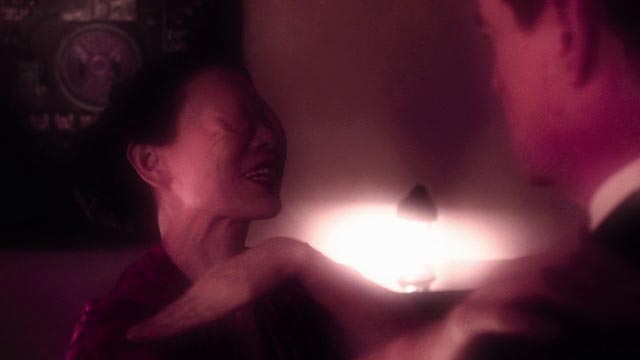
But what really got to me in the middle stretch was a sense of narrative inertia which was most clearly embodied in the character of Dougie Jones. Dougie, a Las Vegas insurance company employee, seems like a sleazy guy, married to Janey-E (Naomi Watts), with a young son Sonny Jim (Pierce Gagnon). After a bit of extramarital sex in a suburban show home, Dougie disappears, to be replaced by Agent Cooper who has managed to squeeze his way back from the Other Place (emerging from an electrical socket in the wall). The problem is, as the one-armed man in the Other Place has told him, it’s not possible for both Coopers to exist in this world at the same time. So although Cooper has returned physically, it’s essentially as an empty shell which everyone mistakes for Dougie because of the physical resemblance.
This “Dougie” is reminiscent of Chauncey Gardener in Being There, an idiot savant whose vacuous echoing of whatever is said to him is invested with meaning by those who hear it. Dougie is as empty as a newborn, devoid of affect, lacking the most basic understanding of how to behave … and yet no-one questions the massive change he has undergone. And his unconscious responses to what’s going on around him begin to make him seem smart – he reveals the corruption of a co-worker to the boss of the insurance company; he uses preternatural awareness to win big on the slots in a casino, drawing the attention of a pair of mob brothers (a terrific comic duo played by Jim Belushi and Robert Knepper) who plan to kill him, but then (in one of the series’ funniest scenes) not only spare him but take him under their wing as a valued friend. And he inadvertently improves the lives of Dougie’s wife and son.
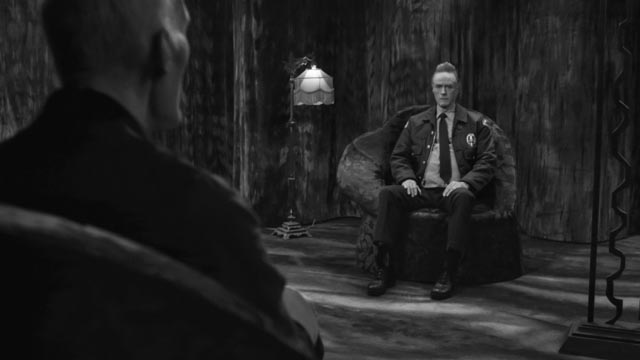
But Dougie’s blankness, stretching on through episode after episode, becomes unbearable. We expect and want Cooper to start breaking through and move the story forward, but he remains a blank, a cipher until the fourteenth episode. Although much of the business happening around him works dramatically and comedically, the figure of Dougie himself becomes unutterably tedious. That is, while experiencing the character … and yet, when Cooper finally breaks through in episode fifteen (having put Dougie into a coma by jamming a fork into an electrical socket at the end of episode fourteen), the sense of relief is overwhelming; it’s like being suddenly released after having been trapped in a claustrophobically tight space. This gives the final episodes a great sense of forward movement, rushing towards a resolution which feels enormously satisfying as it’s reached … a feeling which may well have been absent without the drawn-out sense of blockage which preceded it. And so, despite the frustration I felt while watching Dougie, in retrospect he works brilliantly as a kind of musical note sustained so long that it creates a physical tension which can only be released when the note finally changes.
In other words, it took me that long to realize that I should have been watching the series as I’ve watched the features – not as narratives, but as visual compositions akin to complex musical works. The tension produced by Dougie is like the tension I feel when listening to a lengthy Philip Glass piece which keeps cycling through what seems like the same structure of notes, but is actually gradually working its way towards a resolution. That tension makes the resolution of the Good Cooper/Bad Cooper narrative come as a relief, satisfying in the moment and only in retrospect revealing itself as both absurd and inconclusive … particularly absurd with the introduction so late of Freddie Sykes (Jake Wardle), a young Englishman who was compelled by destiny to come to Twin Peaks with a gardening glove mystically bonded to his right hand, giving him a kind of superpower which proves crucial to defeating Bad Cooper and the spirit of Bob who has been inhabiting him.
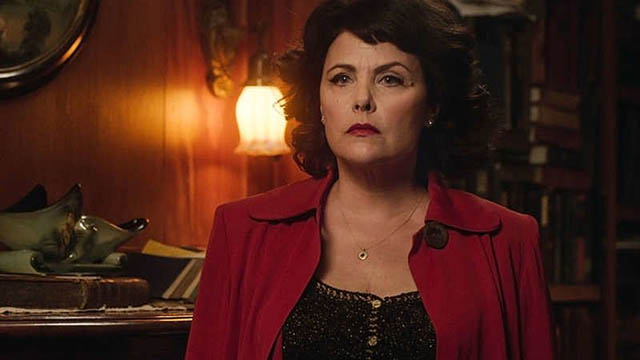
But it turns out that this climax isn’t the end. There have been hints of a powerful supernatural force which is behind all the strange events, some primordial god akin to Lovecraft’s Old Ones called Judy, and Cooper sets off again – first to travel back in time and try to prevent Laura’s murder, but then into what may be an alternate present in which he goes to Texas, finds a middle-aged Laura who has no memory of the past, and whom he takes on a trip back to Twin Peaks where they visit the Palmer house only to discover that the Palmers never lived there. This disorienting rush into an alternate world leads to a chilling final moment which resolves nothing, but ends the series on a note of horror and despair.
Again, Twin Peaks 2017 frequently thwarts any desire the viewer might have for a satisfying narrative experience, but in its overall structure it provides a complex progression of moods and emotions, while in its individual moments there are more rewards than frustrations. What any individual detail may mean is open for endless debate – there’s Ben Horne’s brother Jerry (David Patrick Kelly) wandering about in the woods, at war with his own body, eventually showing up in Wyoming at a crucial moment; there’s Audrey Horne (Sherilyn Fenn) locked in marital battle with her husband Charlie (Clark Middleton), so bitter that she’s literally unable to act; there’s Naido (Nae Yuuki), the eyeless woman from the Other Place, and the chain-smoking Diane (Laura Dern) who isn’t what she seems; and so on – but the pleasures of the series are numerous. Having binged on my first viewing, I know that I missed a lot and I plan to watch it again, perhaps one episode a week as it was originally released, taking my time to absorb it more thoughtfully.
Comments